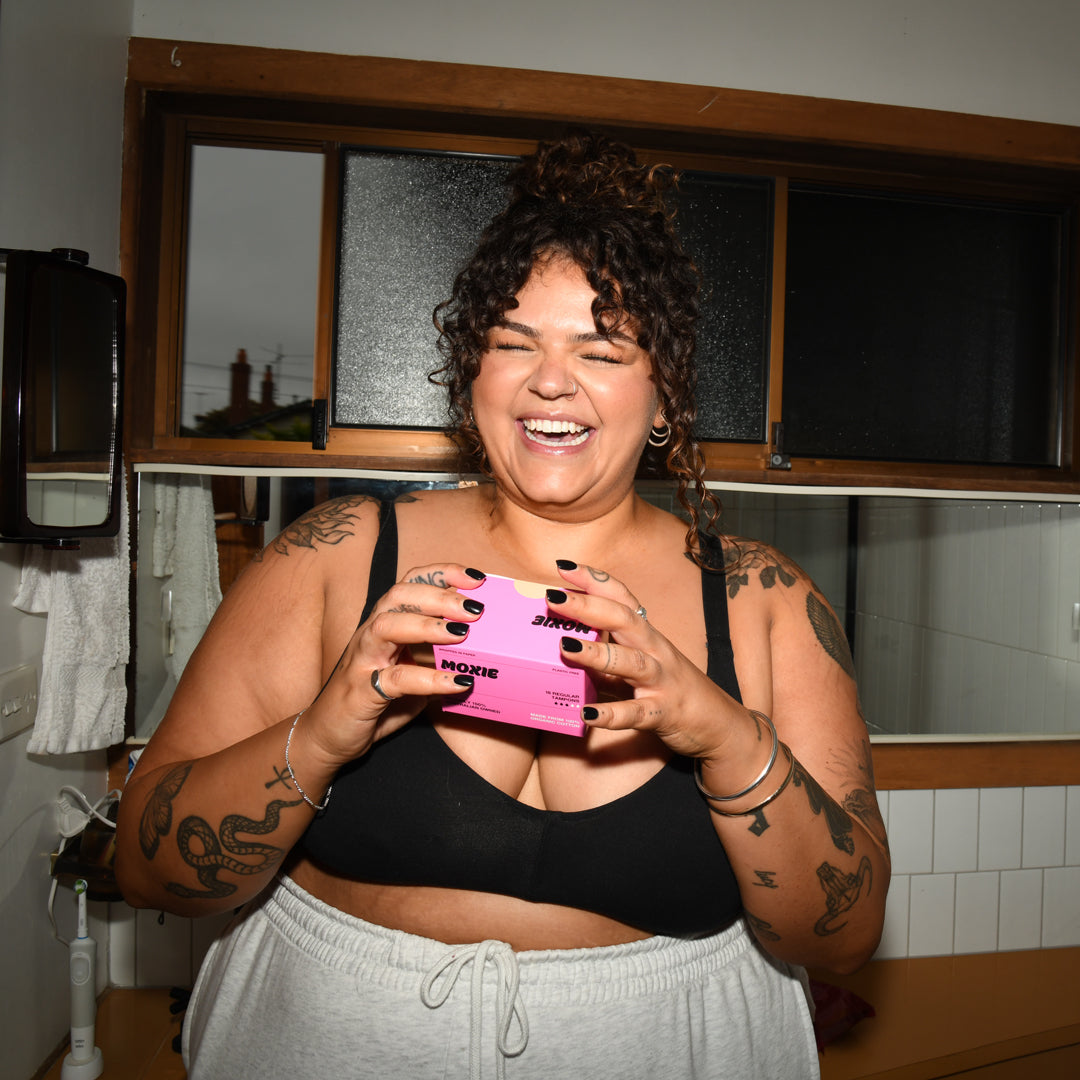
A Complete Guide to Your First Gynaecologist Visit.

Photo by Amine Mayoufi via Unsplash.
When is the right age to make that first appointment? Do I need to prepare? What should I expect? Should I... shave?
Embarking on your first gynaecologist, or OBGYN visit can be a mix of nerves and empowerment. It's also a significant step in prioritising your reproductive health. In this comprehensive guide, we'll walk you through everything you need to know to make your first gynaecologist appointment as smooth and stress-free as possible. With expect tips from our wonderful resident expert OBGYN, Sydney-based Dr. Nicole Stamatopoulos.
WHEN SHOULD YOU FIRST VISIT A GYNAECOLOGIST?
Ah, the big question! We have to hand this one over to the expert - Dr. Nic? "Seeing a gynaecologist is a very individual thing. Some people like to see a gynaecologist every year, but a GP might refer you to a gyno at any age if they are concerned about something in particular," says Dr. Stamatopoulos. "But the reality is, GPs are often very knowledgeable about a lot of gynaecological issues," she adds. "They can do cervical screening tests, discuss contraception, and perform insertion of some of them. However, some people may still want to see a gynae for these things."
Either way, it's important to find a doctor you feel comfortable with. In most cases, you will need a referral from your GP before you're able to secure an appointment with a gynaecologist, so chat to your GP first about the kind of gynaecologist you're looking for (for example, you may prefer a female, or one that specialises in endometriosis, or an OBGYN).
If you're unsure about when is the appropriate time to make your first appointment, talk to your GP for advice. As a rough guide, your first appointment might be around the time you become sexually active, or by the time you turn 21 (even if you've never had intercourse).
WHAT DOES A GYNAECOLOGIST DO ON YOUR FIRST VISIT?
Everyone's experience is going to be a bit different, but your first visit might involve a consultation, or a consultation followed by a physical examination of some kind. At your initial consultation, your gynaecologist will likely take a full medical-surgical history and delve a little deeper into the reason for your visit. Expect a chat about your reproductive health - this is the time to ask questions! Remember, there are no silly questions - your doctor is there to help and assist you with any uncertainties or qualms you've got about your intimate health. It's important to be truthful about information you provide them, too, as this may impact the type of treatment they provide you whilst in their care. Also remember that whatever you tell them remains confidential, so don't worry about them sharing that info with your parent or your partner.
WHAT QUESTIONS WILL MY GYNAECOLOGIST ASK ME?
We asked Dr. Nicole some of the key questions she asks first-time patients so that you can prep for your appointment. Here are the type of questions your gynaecologist might ask you:
- What are your concerns for being referred?
- What age did you start menstruating?
- How long does your period typically last?
- Are your periods regular, or do you experience irregularities?
- Have you ever been pregnant (or are planning to) or had a miscarriage?
- Are you currently using any form of contraception?
- Have you ever had any sexually transmitted infections?
- Are your cervical screenings up to date?
- Are you currently experiencing any vaginal discharge or unusual odors?
These questions help the gynaecologist gain a comprehensive understanding of your reproductive health and any potential risk factors or concerns to address during the visit.
WHAT EXAMS CAN BE DONE AT MY GYNAECOLOGIST APPOINTMENT?
The most common physical examinations performed during gynaecological visits are pelvic exams, breast exams and cervical screenings, but depending on your medical history and any concerns you have raised during your consultation, the may suggest extra tests like an STI screening, or an ultrasound.
The sound of these might be intimidating, and it can be nerve-wracking (even for those of us who are gyno-visit veterans), but try not to be nervous. These exams are usually over pretty quick, are pretty painless, and don't forget - your doctor is a professional and has likely performed hundreds, if not thousands of them!
They will generally leave the room, or provide you with some privacy so that you can prepare for the exam. You'll be asked to undress (usually waist down only, unless you're also doing a breast exam), and you'll be given a gown or sheet to change into/wear to cover yourself. You'll be asked to lie on the exam table and wait for the doctor in prep for the exam.
If your doctor deems some kind of physical examination necessary during your appointment, they will explain this to you first, and you should provide consent to that procedure before you/they proceed. If anything feels uncomfortable or you don't want to go through with anything, you can withdraw your consent at any time.
HOW LONG DOES THE FIRST GYNO APPOINTMENT TAKE?
A typical first gynaecologist appointment clocks in at around 20 to 30 minutes. But if your ovaries have something extra to discuss, or there are a few more tests needed, it might stretch a tad longer.
HOW DO I PREPARE FOR MY FIRST GYNO APPOINTMENT?
Here are some helpful tips to help you prep for your first visit with a gynaecologist:
- Set aside about 30 minutes for the appointment; remember, your gyno is there to help YOU, so come prepared with any questions or concerns you may have for your doc.
- No need for a pre-appointment grooming session; your gynaecologist is more interested in your health than your razor habits. "We really don't mind," says Dr. Stamatopoulos.
- Wear something comfortable and easy to get changed in and out of, in case a physical exam is necessary.
- If you have your period, you should still be able to go to your appointment, depending on what your visit is about. Call the clinic ahead of time to be sure.
Getting ready for your gynaecologist visit sets the stage for a productive and comfy experience. And hey, consider stocking up on period essentials beforehand to keep things smooth sailing.
CAN I STILL GO TO THE GYNO IF I'M ON MY PERIOD?
In general yes, though it may depend on what your appointment entails. Dr. Stamatopoulos explained to us that it's probably best to re-schedule if you're going in for something like a cervical screening or colposcopy. "We would also generally prefer to have a less heavy flow if you are coming for an IUD insertion," she adds.
Each gynaecologist may have differing prerences and opinions about this, so if you do have your period when your gyno appointment is due, call ahead to see if they recommend a reschedule.
HOW OFTEN SHOULD I VISIT MY GYNO?
"This is very individual," says Dr. Stamatopoulos. "It can depend on the reason for coming to the gynaecologist, so I generally leave it up to the patient."
Though if you ever feel that something isn't quite right, check in with your gynaecologist - don't hesitate - whether it's a lump in your breast, large clots in your period blood or pelvic pain of any kind, make an appointment.



